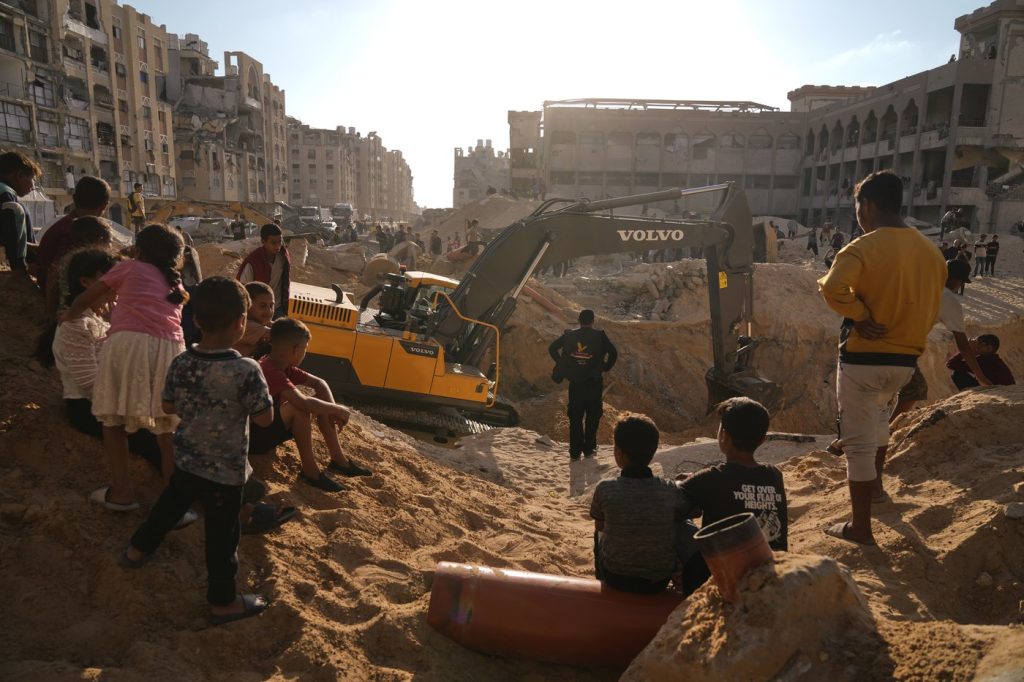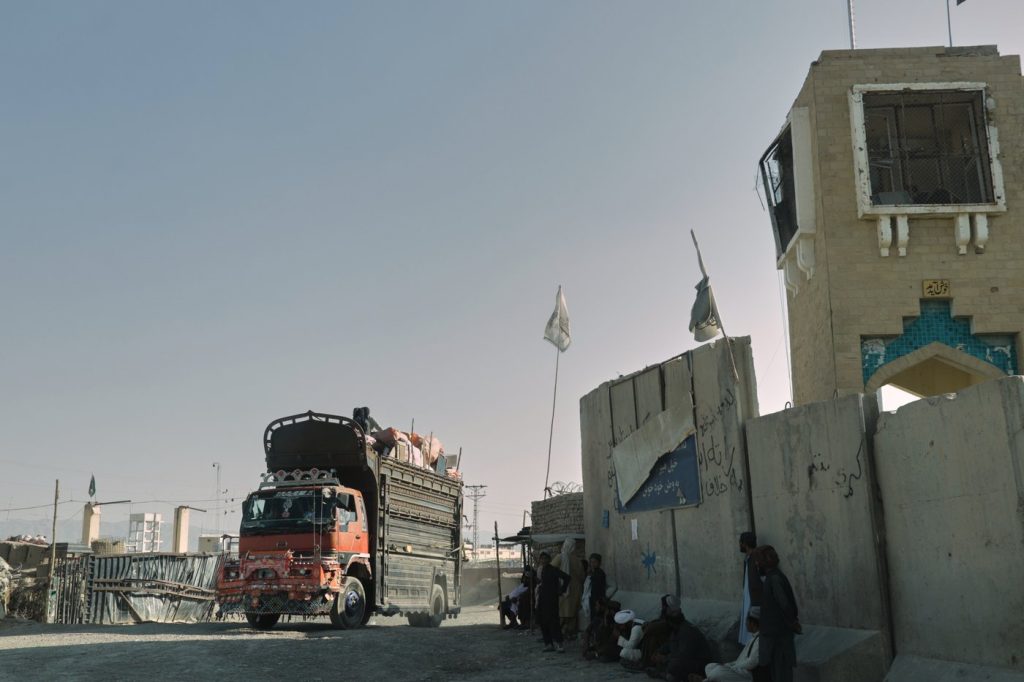CAIRO (AP) – Hamas has intensified its efforts to locate the bodies of hostages within the Gaza Strip, according to a statement released by the Palestinian group on Sunday. This development follows the deployment of a specialized Egyptian team equipped with heavy machinery to assist in body recovery operations.
Under the U.S.-brokered ceasefire that commenced on October 10, 2025, Hamas is anticipated to expedite the return of the remains of all Israeli hostages. In a reciprocal arrangement, Israel has consented to return 15 Palestinian bodies for every Israeli counterpart returned. However, difficulties remain in achieving these goals.
Children and other residents observed as the Egyptian machinery, including excavators and bulldozers, sifted through the rubble in Khan Younis, a city heavily damaged in recent conflicts. Since the start of the ceasefire, Hamas has recovered the remains of 15 hostages, but none have been transferred in the last five days. In contrast, Israel has returned the remains of 195 Palestinians, many of whom remain unidentified.
Future complications loom as the ceasefire plan includes disarmament of Hamas and addressing the governance of Gaza, which is experiencing significant famine. The United Nations and various humanitarian partners continue to urge Israel to facilitate the influx of aid into the region.
International media access to Gaza remains restricted, with only brief entries permitted under the supervision of the Israeli military. On Sunday, Israel confirmed that this policy had not changed.
U.S. President Donald Trump expressed his concern over the next 48 hours, indicating he was “watching very closely” to ensure Hamas returns more bodies. He noted on social media that while some remains might be difficult to access, others could be returned immediately.
Hamas's chief in Gaza, Khalil al-Hayya, stated the group was searching new areas to locate the remaining 13 hostages. Nevertheless, they have claimed that the extensive destruction complicates the recovery efforts. An Egyptian team equipped with heavy machinery, part of ongoing mediation efforts, entered Gaza to help retrieve the bodies.
Israeli Prime Minister Benjamin Netanyahu defended the military's recent operations following an Israeli strike on the Nuseirat refugee camp in Gaza, which occurred late Saturday. The Israeli military claimed this operation targeted members of the Palestinian Islamic Jihad group who were allegedly planning attacks. In response, Islamic Jihad has denied any such plans, and Hamas labeled the strike a “clear violation” of the ceasefire agreement, accusing Netanyahu of sabotaging U.S. mediation efforts.
Netanyahu asserted that Israel retains control over its security operations, amid accusations that the U.S. administration was influencing Israel's defense strategies regarding Gaza. Vice President JD Vance rebuffed any related claims during his recent visit to the region.
The Nuseirat strike was part of a series of Israeli military actions that began on October 19, after accusations that Hamas militants had killed two Israeli soldiers. This assault resulted in at least 36 Palestinian fatalities, intensifying tensions surrounding the ceasefire.
According to Gaza’s Health Ministry, over 68,500 Palestinians have died during the past two years of conflict, initiated by the Hamas-led assault on Israel on October 7, 2023. The ministry's casualty records, generally viewed as reliable by U.N. agencies, do not differentiate between civilians and combatants, while Israel has contested these figures without providing an alternatively validated count.
The latest airstrike coincided with the departure of U.S. Secretary of State Marco Rubio from Israel, marking his visit to a new center aimed at coordinating civilian and military efforts to oversee the ceasefire. Rubio confirmed that collaborative efforts among Israel, the U.S., and other mediators are essential for neutralizing threats and remarked that they successfully identified a potential attack the prior weekend.
Around 200 U.S. troops are currently collaborating with Israeli forces and international representatives at this coordination center, focusing on planning for the stabilization and reconstruction of Gaza. The U.S. has reassured that its troops will not engage in ground operations within the region.












